Posted by Sabrina Farmer, Senior Site Reliability Engineering Manager for Gmail
On September 23rd, many Gmail users received an unwelcome surprise: some of their messages were arriving slowly, and some of their attachments were unavailable. We’d like to start by apologizing—we realize that our users rely on Gmail to be always available and always fast, and for several hours we didn’t deliver. We have analyzed what happened, and we’ll tell you about it below. In addition, we’re taking several steps to prevent a recurrence.
The message delivery delays were triggered by a dual network failure. This is a very rare event in which two separate, redundant network paths both stop working at the same time. The two network failures were unrelated, but in combination they reduced Gmail’s capacity to deliver messages to users, and beginning at 5:54 a.m. PST messages started piling up. Google’s automated monitoring alerted the Gmail engineering team within minutes, and they began investigating immediately. Together with the networking team, the Gmail team restored some of the network capacity that was lost and worked to repurpose additional capacity, clearing much of accumulated message backlog by 1:00 p.m. PST and the remainder by shortly before 4:00 p.m. PST.
The impact on users’ Gmail experience varied widely. Most messages were unaffected—71% of messages had no delay, and of the remaining 29%, the average delivery delay was just 2.6 seconds. However, about 1.5% of messages were delayed more than two hours. Users who attempted to download large attachments on affected messages encountered errors. Throughout the event, Gmail remained otherwise available — users could log in, read messages which had been delivered, send mail, and access other features.
What’s next? Our top priority is ensuring that Gmail users get the experience they expect: fast, highly-available email, anytime they want it. We’re taking steps to ensure that there is sufficient network capacity, including backup capacity for Gmail, even in the event of a rare dual network failure. We also plan to make changes to make Gmail message delivery more resilient to a network capacity shortfall in the unlikely event that one occurs in the future. Finally, we’re updating our internal practices so that we can more quickly and effectively respond to network issues. We’ll be working on all of these improvements and more over the next few weeks—even including this event, Gmail remains well above 99.9% available, and we intend to keep it that way!



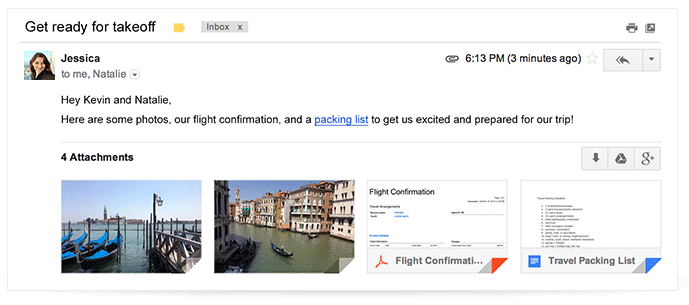

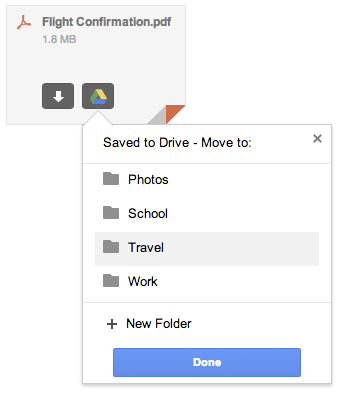



 You can write single or even multiple characters at once in the panel to see them show up in your message or document. Currently, handwriting input is available in Google Docs for over 20 languages and in Gmail for over 50 languages, including Chinese, Japanese, Hindi and Russian.
You can write single or even multiple characters at once in the panel to see them show up in your message or document. Currently, handwriting input is available in Google Docs for over 20 languages and in Gmail for over 50 languages, including Chinese, Japanese, Hindi and Russian. Handwriting input makes the internet easier to use by people worldwide and is also part of a larger effort to break the barrier between languages, check it out in Google Mobile Search, Google Translate (Web, Android and iOS), and the Chrome browser.
Handwriting input makes the internet easier to use by people worldwide and is also part of a larger effort to break the barrier between languages, check it out in Google Mobile Search, Google Translate (Web, Android and iOS), and the Chrome browser.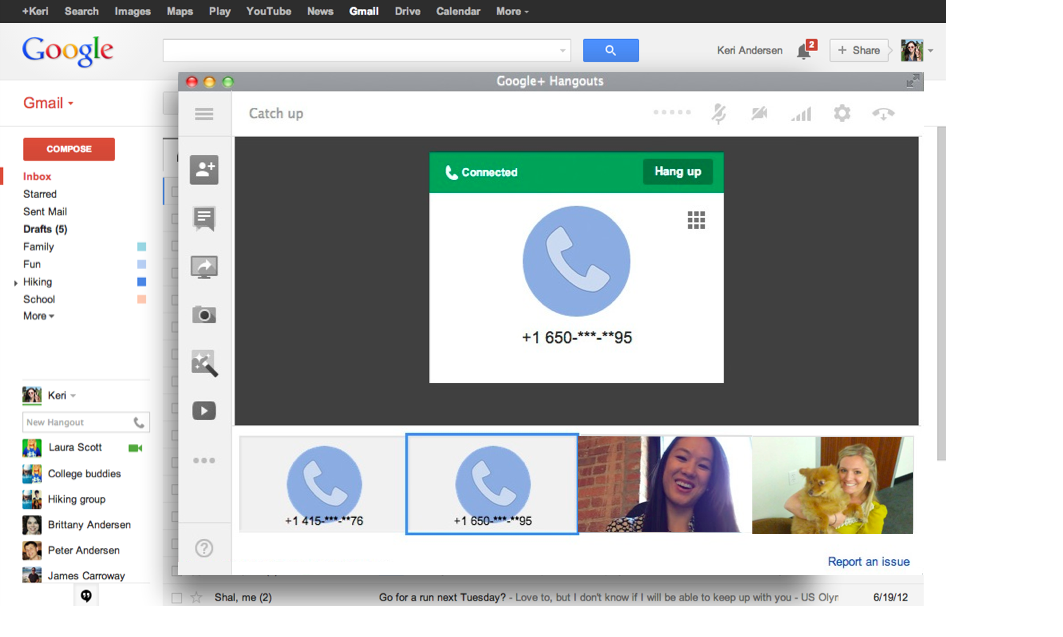 Today’s launch also improves the desktop calling experience in a number of ways. For example: you can add multiple phone numbers and video participants to the same call; and you can play sound effects (like applause or laughter) with the Google Effects app.
Today’s launch also improves the desktop calling experience in a number of ways. For example: you can add multiple phone numbers and video participants to the same call; and you can play sound effects (like applause or laughter) with the Google Effects app.
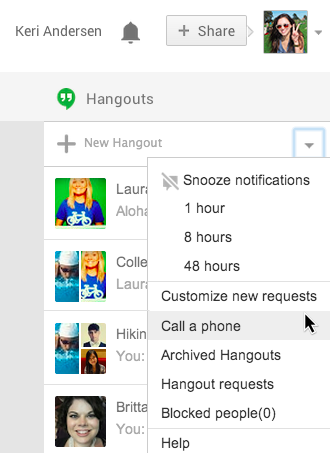 Making calls from Hangouts is rolling out over the next couple of days. As we’ve said before: Hangouts is designed to be the future of Google Voice, and making and receiving calls is just the beginning. So stay tuned for future updates.
Making calls from Hangouts is rolling out over the next couple of days. As we’ve said before: Hangouts is designed to be the future of Google Voice, and making and receiving calls is just the beginning. So stay tuned for future updates.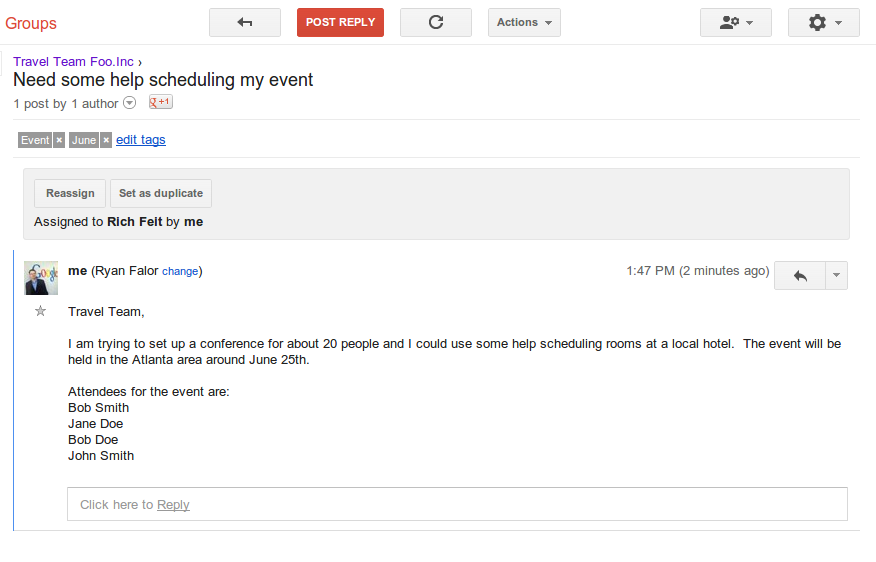 Additionally, there are several new moderation tools to make managing your forum easier and faster. For example, you can now use canned responses in forums and use streamlined options to make moderating forum posts easier. And if you are on the go, you can browse and moderate your groups with our mobile website.
Additionally, there are several new moderation tools to make managing your forum easier and faster. For example, you can now use canned responses in forums and use streamlined options to make moderating forum posts easier. And if you are on the go, you can browse and moderate your groups with our mobile website. You can easily customize the new inbox – select the tabs you want from all five to none, drag-and-drop to move messages between tabs, set certain senders to always appear in a particular tab and star messages so that they also appear in the Primary tab.
You can easily customize the new inbox – select the tabs you want from all five to none, drag-and-drop to move messages between tabs, set certain senders to always appear in a particular tab and star messages so that they also appear in the Primary tab.
 If the new inbox isn’t quite your style, you can simply switch off all optional tabs to go back to classic view, or switch to any of your other favorite inbox types.
If the new inbox isn’t quite your style, you can simply switch off all optional tabs to go back to classic view, or switch to any of your other favorite inbox types. These buttons appear next to certain types of messages in your inbox and let you take action on an email without ever having to open it. For example, you can RSVP to your friend’s party invitation or rate that restaurant you went to last night all right from the inbox. You’ll be checking things off that to-do list in no time.
These buttons appear next to certain types of messages in your inbox and let you take action on an email without ever having to open it. For example, you can RSVP to your friend’s party invitation or rate that restaurant you went to last night all right from the inbox. You’ll be checking things off that to-do list in no time. These quick actions will roll out over the next few weeks, and we hope to add even more useful actions moving forward. If you are a developer and want to add actions to your emails, check out developers.google.com/gmail/schemas to learn more.
These quick actions will roll out over the next few weeks, and we hope to add even more useful actions moving forward. If you are a developer and want to add actions to your emails, check out developers.google.com/gmail/schemas to learn more.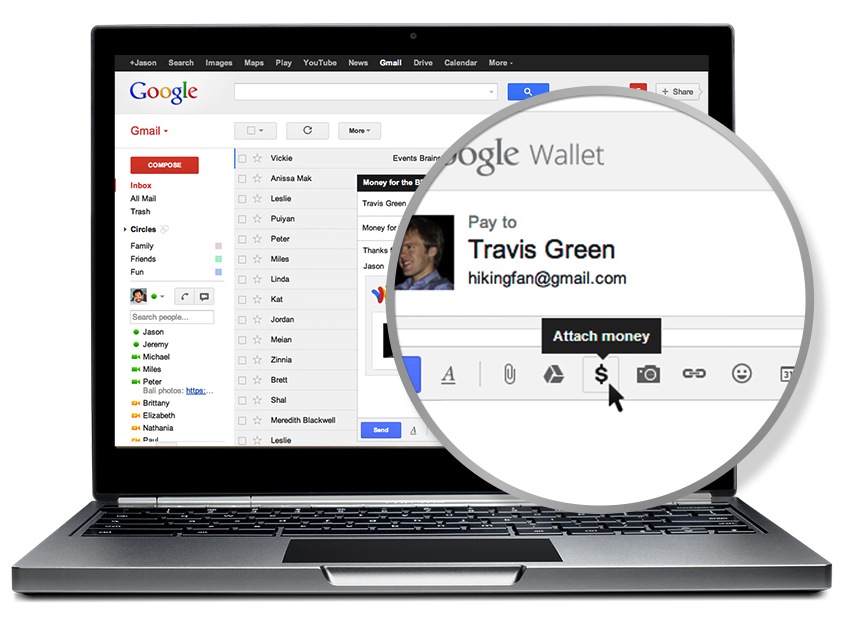 While sending money in Gmail is currently only available on desktop, you can send money from Google Wallet at wallet.google.com from your phone or laptop. You will need to have set up Google Wallet to send and receive money, and Google Wallet Purchase Protection covers you 100% against eligible unauthorized payments.
While sending money in Gmail is currently only available on desktop, you can send money from Google Wallet at wallet.google.com from your phone or laptop. You will need to have set up Google Wallet to send and receive money, and Google Wallet Purchase Protection covers you 100% against eligible unauthorized payments.
 The new Hangouts experience in Gmail is rolling out as an optional switch starting today. Click the “Try it out” button when it appears next to your chat list to switch right away, or you can switch later. Learn more about the new Hangouts here.
The new Hangouts experience in Gmail is rolling out as an optional switch starting today. Click the “Try it out” button when it appears next to your chat list to switch right away, or you can switch later. Learn more about the new Hangouts here.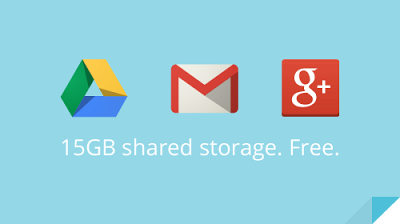
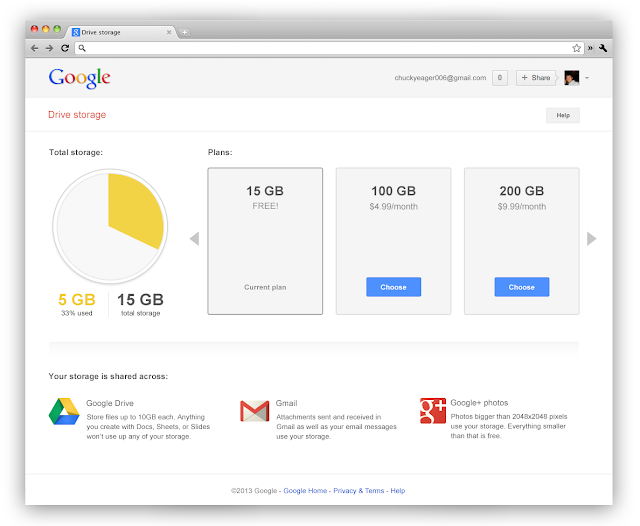
 When you click on one of these underlined dates, you’ll be able to preview your schedule for the day and change the title, date or time of the event. Clicking “Add to Calendar” will do exactly that — add the event to your calendar, and for extra convenience, the calendar event will include a link back to the original email.
When you click on one of these underlined dates, you’ll be able to preview your schedule for the day and change the title, date or time of the event. Clicking “Add to Calendar” will do exactly that — add the event to your calendar, and for extra convenience, the calendar event will include a link back to the original email.